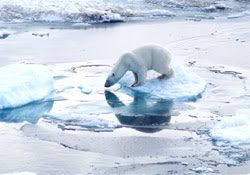Hiroshima and "Little Boy"
“My God, what have we done?”
Just seconds after dropping the atomic bomb on the Japanese city of Hiroshima, these words escaped the lips of Captain Robert A. Lewis, co-pilot of the Enola Gay. Seconds after the purple uranium flash lit up the sky. Seconds after the ball of flame spread its tentacles into the flesh of Hiroshima’s people. Seconds before the explosion flattened the life and dreams of a city.
Just six hours earlier. August 6, 1945, 2:45 a.m. The Enola Gay, a B-29 airplane, named after pilot Colonel Tibbet’s mother, takes off from Tinian. Its destination? The clear blue skies over the city of Hiroshima.
The Enola Gay is weighed down by its deadly cargo. She is heavy and barely clears the runway. Shortly after take off Colonel Tibbets turns to his crew. “This is history, so watch your language. We’re carrying the first atomic bomb”
(Watch your LANGUAGE?)
At some point on their almost six hour journey the bomb, code named: “Little Boy” is armed by its crew. Then the wait for news from three weather planes sent out earlier to gauge weather conditions over Hiroshima, Kokura and Nagasaki.
Major Claude Eatherley tells them what they want to hear. His coded message informs the crew of the Enola Gay that conditions have never been better. The weather is perfect for dropping an atomic bomb.
The captain and crew hover above the city at 31 600 feet.
8:15 a.m. plus 17 seconds. The crew protects their delicate eyes with special goggles. It is time. The world’s first atomic bomb is unleashed on the city of Hiroshima.
At least 78 000 (probably many thousands more) were killed or injured in the explosion over Hiroshima. Those who escaped death stumbled through the flattened wasteland of a broken city, their flesh turned to melted, raw, charcoal, their hair incinerated. Their families were dead or would be maimed for generations to come. They would become known as the “hibakusha” and “higaisha” (victim) rather than “seizonsha” or “survivor”, a term believed to dishonor the dead.
Physicist J. Robert Oppenheimer oversaw the construction of the bomb. “The decision was implicit in the project. I don’t know whether it could have been stopped”. He is reported to have said.
Yes. There were men who spoke against using the atom bomb in those dark days. A small group of scientists and military men suggested proving the bomb’s power on an isolated, uninhabited area of Japan, fighting an “ordinary” war or simply warning the Japanese of the existence of the bomb. But conventional warfare was considered too “time-consuming” to be viable, given the Soviet threat.
But the bomb over Hiroshima did achieve something. On August 9, 1945 The Japanese Supreme War Council met to discuss surrender. Unfortunately they were too late. At 11:02 that same day, a second atomic bomb was exploded over the city of Nagasaki. On September 2, Japan surrendered.
In his poem, “Morning”, Sankichi Toge tells us something about the thoughts of Hiroshima’s people after that ill-fated day:
“They dream:
That those swine in man’s shape
Who do not know how to use the power
From the earth’s center except for
Slaughter
Survive only in illustrated books for the
little ones.
That the energy of ten million horsepower
per gram, one thousand times as strong
as high explosive,
Be delivered, out of the atom into the
hands of the people,
That the rich harvest of science
Be conveyed, in peace, to the people
Like bunches of succulent grapes
Wet with dew
Gathered in
At dawn.”
So I ask you now. Was it worth it?
What do you think?










3 Comments:
no. no no no no no no. and no.
these monstrosities should never have been dreamed up.
this has always made me sick.
humans=big brain=too smart to be intelligent? hee let's hope it never happens again, ever. Do you think it will?
i seriously hope not. but.. i'm kind of a fatalist, i think we'll eventually kill our planet. if not like this, then it will be a slow suicide.
BAH! i just depressed the hell out of myself.
Post a Comment
<< Home